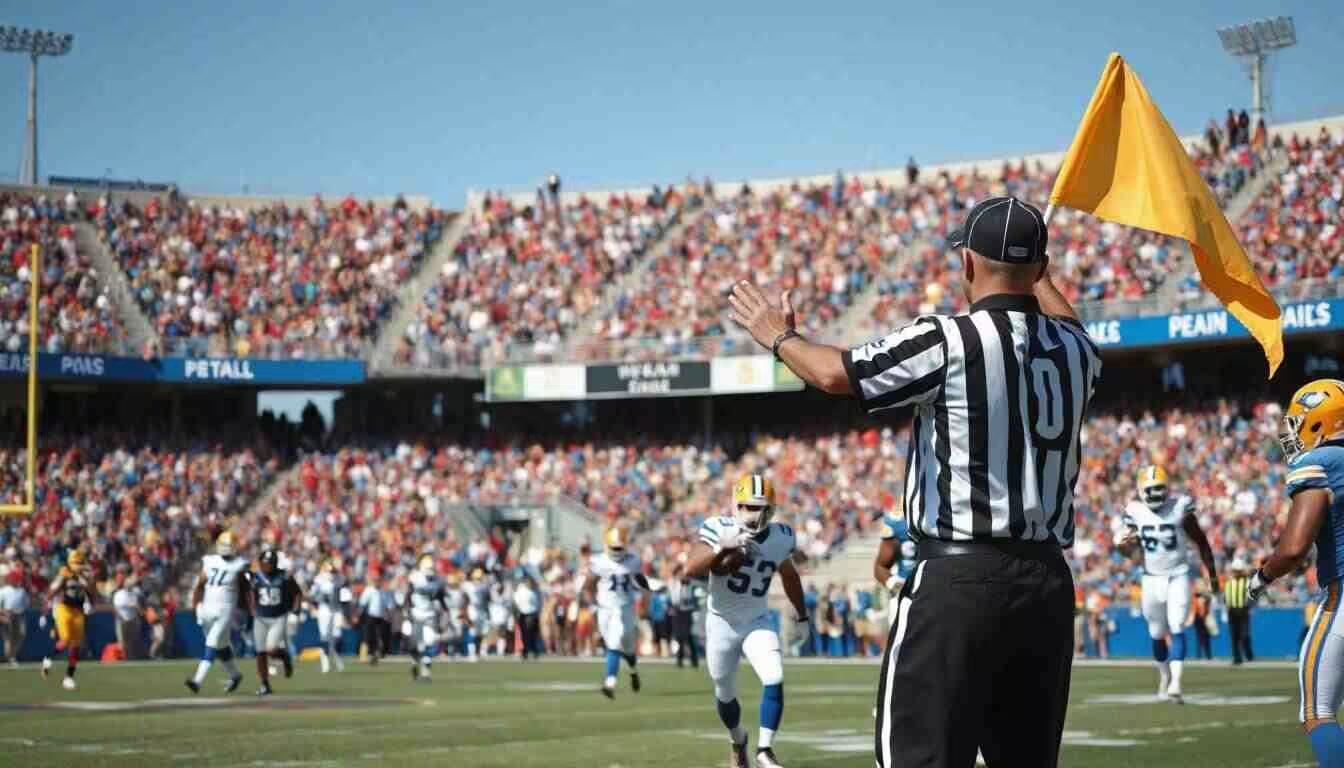Pass interference is one of the most debatable calls in American football. Sometimes it swings the momentum dramatically and leaves fans screaming at their TVs, but something that often causes confusion is what it really entails. Is pass interference an automatic first down?
The answer is: it depends.
NFL Pass Interference Rules
The NFL has set it down that all pass interference on defense in the league is always an automatic first down, regardless of where on the field the penalty is called. Even if called 1 yard away from the line of scrimmage, an offense will be awarded a new set of downs.
The ball is not automatically advanced a down from defensive pass interference. It’s a 10 yards from the spot, and a down lost to the offense.
The takeaway in general:
- Defensive Pass Interference: First down automatic
- Offensive Pass Interference: 10-yard penalty, lost down
Why? The NFL rules are intended to be in favor of the offense very greatly and encourage more passing plays. Defensive pass interference is also a greater foul, so it is tougher on the offense to get yards.
You may also like to read about NFL in Mexico
College Football Pass Interference Rules
The college football pass interference rules vary slightly. Here is the comparison:
Defensive Pass Interference:
- If the foul is committed in the end zone, it is a spot foul and the ball is spotted at the 1 yard line.
- If the foul is committed out of the end zone, it is a spot foul but automatically becomes an automatic first down, if the yardage earned by the penalty would have gained a first down.
Offensive Pass Interference:
- 15-yard penalty, loss of down.
Example: If the defensive pass interference penalty occurred on the opponent’s 35-yard line and the pass was thrown to the 20-yard line, then it would be a 15-yard penalty from the 35-yard line, and that’s an automatic first down at the 20-yard line. But the same penalty by a pass intended for the 30-yard line would be 5 yards from the 35-yard line as 2nd & 5 at the 30.
Key Differences Between NFL and College Football
| Feature | NFL | College Football |
| Defensive Pass Interference | Always automatic first down | Automatic first down only if penalty yardage reaches first down marker |
| Offensive Pass Interference | 10-yard penalty, loss of down | 15-yard penalty, loss of down |
| Pass Interference in the End Zone | Spot foul, automatic first down | Spot foul, ball placed at the 1-yard line |
What is Pass Interference?
The NFL and college football share common requirements for what constitutes the acts of pass interference below.
- Defensive Pass Interference: If a defensive player obstructs, or impedes, a receiver’s opportunity to catch the ball, it’s illegal. This includes reaching, pushing, or making contact with the receiver before the ball reaches him.
- Offensive Pass Interference: A receiver cannot push off, grab, or impede a defender’s ability to cover them.
Such calls are subjective and are often debated, with plenty of excitement and frustration built into the game.
Impact on the Game of Pass Interference
Pass interference penalties often change the game. They can extend drives, lead to scoring opportunities, and shift momentum toward one team. It is necessary to understand the rules and implications of pass interference for both players and fans alike.
- To the player, knowledge of these rules can be a big saver in avoiding costly penalties.
- To the fan, knowing the rules helps better appreciate the game and its stratagem complexities.
Knowing the ins and outs of pass interference could make football-watching a great deal more exciting whether you’re a die-hard fan or just a casual observer. The next time you see that yellow flag fly, you’ll have a better understanding of what just happened and why!




